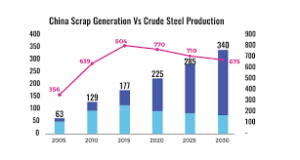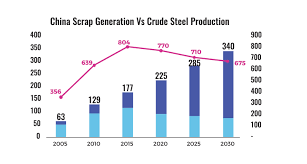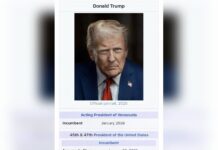 WASHINGTON: China is not only disrupting the global steel market but also causing both direct and indirect damage to it, US Commerce Secretary Wilbur Ross has alleged, as he defended the Trump administration’s decision to impose a 25 per cent tariff on import of steel.
WASHINGTON: China is not only disrupting the global steel market but also causing both direct and indirect damage to it, US Commerce Secretary Wilbur Ross has alleged, as he defended the Trump administration’s decision to impose a 25 per cent tariff on import of steel.
China is the world’s biggest producer of steel and aluminum, which have been subject to 25 per cent and 10 per cent import tariffs, respectively, in the US.
President Donald Trump has imposed heavy tariffs on imported steel and aluminum which he said were necessary to boost the US industry suffering from unfair business practices, a move that has sparked fears of a global trade war.
Ross during a Congressional hearing on tariffs told members of the Senate Finance Committee that looking at the raw data; one would not think China is a problem for the US, as it is “masking” their exports to America by shipping them through other countries.
“If you just believe the raw numbers, China is shipping less to us than they did five years ago. The reality is quite to the contrary. They are disrupting the global steel markets. They are causing both direct and indirect damage to it. So we have to do it on a global basis, he said.
“The reason the tariff is being put on essentially all countries, most of whom are friendly countries and have good relations with us, and some others of which also have surpluses with us, the reason it has be a global solution, Ross said.
Ross agreed with the assessment of lawmakers that China uses “unfair” trading practices to gain market share not just in steel but other sectors down or up the supply chain.
Senator John Thune alleged that China has been stealing US intellectual property and using unfair trade practices for far too long.
“We all acknowledge that. And I’m glad the president is taking this problem seriously, unlike his predecessor,” he said.
According to the Commerce Secretary, the basic strategy is to try to bring enough pressure on parties who are not behaving appropriately so that they conclude that the alternative of continuing their present behavior is going to be more painful to them than acceding to the requests the US has made that they honor intellectual property.
So far the US tried negotiations; he said adding that it did not work.
“We tried negotiation. I, myself, have been, four or five times, in China, negotiating, over the last year or so, and the president has concluded that we need more than just negotiation. There have been years of talk with China about intellectual property, he said.
“The president feels, and I agree, that now is the time for action. And, unless we make it more painful for them to continue those practices than to do otherwise, unless we put that that kind of pressure on, it’s unlikely we will succeed, Ross told lawmakers.
Senator Sherrod Brown said that China has been trying to gain US market share by buying up US companies.
Responding to questions, Ross said the Trump administration is developing a list of downstream products that have been hurt by imports since the tariffs have been imposed.
We are incorporating as many of these as are logical to the list we are recommending for inclusion in the 301 tariff listing of USD200 billion that will be released shortly. We’ve already found some 50 products that will be included in that list, he said.
Ross told lawmakers that the US is not the only country that has expressed concern about the types of unfair trade practices and excess capacity that are prevalent in the steel and aluminum industries.
He said countries like China have provided massive subsidies to their companies, and this is harming markets worldwide.
“Recognizing our shared concern about global excess capacity, the president’s proclamations announcing these actions welcomed any country with which we have a security relationship to discuss alternate ways to address the threatened impairment of the national security caused by imports from that country, he said. PTI







